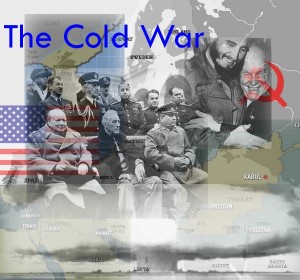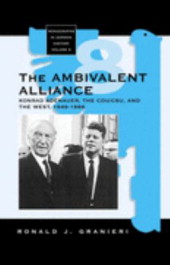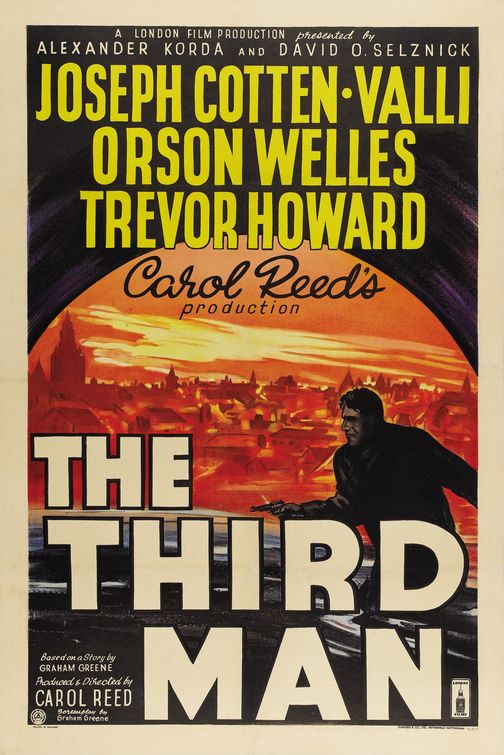By Ronald J. Granieri, on Thu Jun 16, 2011 at 8:30 AM ET Syracuse University Professor and Friend of RP Ronald J. Granieri tackled an important subject recently for The American Interest magazine: Henry Clay, the Great Compromiser and — more importantly — the namesake of the RP’s high school. Here is his fascinating take on the legend from Lexington and how he has come between two GOP politicians in Kentucky today:
This past February, Senator Rand Paul (R-KY) used his maiden speech on the Senate floor to attack one of his home state’s most cherished historical heroes. Standing at Henry Clay’s Senate desk, Paul criticized the legacy of the Great Compromiser. “Henry Clay’s life story is, at best, a mixed message”, Paul said. “Henry Clay’s great compromise was over slavery. One could argue that he rose above sectional strife to carve out compromise after compromise trying to ward off civil war. Or one could argue that his compromises were morally wrong and may have even encouraged war, that his compromises meant the acceptance, during his fifty years of public life, of not only slavery, but the slave trade itself.”
Paul admitted that there were no questions before the Senate with the same moral force as slavery; he nevertheless went on to pose a series of rhetorical questions about whether America’s current national debt problems might not be best solved by strong attachment to principles rather than compromise.
Paul’s speech raised eyebrows not merely because of its aggressive tone, unusual for freshman Senators, but also because his apparently abstract references to Clay were to many a sign of tensions between Paul and his senior colleague, Senate Majority Leader Mitch McConnell. McConnell had favored a different candidate in Kentucky’s Republican primary and, more to the point of Paul’s message, he has often counted Clay among his political role models. A portrait of Clay adorns McConnell’s Senate office, and he once told an interviewer that Clay “understood the need for compromises that were truly important for the country. . . . I think that remains just as true today as it did in 1820 or 1850.”
To read the rest of Granieri’s piece, click here.
By Ronald J. Granieri, on Wed Jun 8, 2011 at 8:30 AM ET  Last week Speaker of the House John Boehner (R-OH) introduced H.Res 292, which declared that President Obama “has failed to provide Congress with a compelling rationale based upon United States national security interests for current United States military activities regarding Libya,” and placed the White House under a 14-day deadline to respond to these concerns and to explain why the action is justified under the War Powers Act. The resolution passed 268-145, and was immediately denounced by the White House as “unhelpful and unnecessary.” Last week Speaker of the House John Boehner (R-OH) introduced H.Res 292, which declared that President Obama “has failed to provide Congress with a compelling rationale based upon United States national security interests for current United States military activities regarding Libya,” and placed the White House under a 14-day deadline to respond to these concerns and to explain why the action is justified under the War Powers Act. The resolution passed 268-145, and was immediately denounced by the White House as “unhelpful and unnecessary.”
On its face, this routine—the Republican-controlled House passes a measure designed to annoy the White House, and the White House responds with annoyance—is not particularly unusual these days. In this case, though, the back-story is much more interesting. The original impetus came not from Republicans, but from liberal activist Rep. Dennis Kucinich (D-OH), whose resolution calling on President Obama to withdraw troops from Libya within two weeks and accept other restrictions forced Boehner’s hand. The House rejected Kucinich’s more forceful resolution, but just as many Democrats joined in supporting H.Res 292, many Republicans, especially Tea Party icons Ron Paul (R-TX) and Michelle Bachman (R-MI), voted for it, and Boehner himself realized that the House needed to put together some sort of resolution.
 The real issue here goes beyond the immediate politics of the day. It is decades old, and it relates to the ways that the Cold War destroyed the constitutional balance between the Executive and Legislative branch. The Constitution clearly says that only Congress has the power to declare war, but the Executive has control over foreign policy. The real issue here goes beyond the immediate politics of the day. It is decades old, and it relates to the ways that the Cold War destroyed the constitutional balance between the Executive and Legislative branch. The Constitution clearly says that only Congress has the power to declare war, but the Executive has control over foreign policy.
The permanent emergency of the Cold War, with troops stationed overseas, intermittent crises requiring fast action, and Congress members unwilling to appear weak on national security, all tipped the balance very far in favor of the President. Added to this was the President’s ultimate control over the nation’s nuclear forces (what Garry Wills has called his “Bomb Power”), which made both Congress and the concept of declaring war appear essentially irrelevant. Encouraged by a broad bipartisan consensus in favor of containment, the US Empire grew exponentially after 1945, and with it an increasingly imperial presidency.
Read the rest of…
Ronald J. Granieri: The Imperial Presidency — Now and Forever?
By Ronald J. Granieri, on Mon May 30, 2011 at 2:30 PM ET My Godfather, Bill Mellan, had an easy smile and a big laugh. He was instantly likeable, and was a loving father to his boys as well as a devoted husband to the love of his life, my Godmother Mary Jean.
He was also a veteran of the Battle of the Bulge, who had received the Bronze Star for bravery. I heard this last fact not from him but from my mother. Uncle Bill was much too kind and self-effacing to puff himself up with tales of military glory. I never heard him talk about his war experiences, and am under the impression that he kept the stories of his heroism to himself. That kind of quiet heroism is valuable and rare in a society where too often people cannot rush to a microphone fast enough to tout their latest insignificant accomplishment, and it just one reason why I admire him.
I am not a big fan of the propaganda about “the Greatest Generation,” which strikes me as too much Baby Boomer self-regard masquerading as filial piety, as if praising their parents now will make up for the awful things they said about them back in the 1960s. But I have nothing but respect and praise for those who did serve, and who, after doffing their uniforms, returned to build American society as loving husbands and fathers and hard working friends and neighbors. Those are true heroes. People like my Uncle Bill.
By Ronald J. Granieri, on Mon May 2, 2011 at 4:15 PM ET I went to bed early Sunday night, and thus did not hear the big news about the capture and killing of Osama bin Laden until this morning when I received an email from the RP himself asking me if I wanted to write a response. After receiving the note, I turned on my radio (which is of course tuned to NPR, because I am a College Professor) and heard the details. My initial reaction was surprise, for two reasons: I was surprised that the search for bin Laden was still ongoing, and I was surprised by how ambivalent the news made me feel.
Historians have a bad and well-earned reputation for being killjoys, so I am sure that few will be surprised by my ambivalence, but I hope my thoughts on the subject can be a useful spur to further debate.
Certainly, the elimination of a terrorist mastermind and mass murderer with thousands of deaths on his conscience cannot be anything but a good thing, and I am happy to think that some of the families of bin Laden’s victims can enjoy the thought that the man responsible for such crimes as 9/11 has been brought to justice. I have to admit discomfort with the idea that the team of SEALs went in with explicit orders to kill rather than capture bin Laden for trial. At the same time I rather doubt that he would have been willing to be taken alive, and am aware of the enormous problems that a trial would have posed, so I do not think it makes much sense to cavil at that subject.
The real source of my ambivalence is the feeling that no one really knows what this will mean in the long run. The US has scored a major symbolic victory, but it does not mean the end of the conflict in which the US and its allies are presently engaged. Furthermore, the nature of that struggle demands that we not fall prey to complacency after one success, however satisfying.
Read the rest of…
Ronald J. Granieri: The Death of Public Enemy #1
By Jonathan Miller, on Wed Apr 20, 2011 at 12:30 PM ET NATO’s operations in Libya have created a very odd moment in international affairs. The decision to commit US and NATO forces to help the embattled rebels by imposing a no fly zone happened so fast there was barely any time for an actual debate. The momentum for swift action, however, has dissipated now that the decision has been made, leaving us with a stalemate on the ground and with lingering concerns that, almost in a fit of insensibility, the US and its allies have begun an adventure without any clear idea of how or when it will end.
The political contortions surrounding the decision to act will keep historians and political scientists busy for years. It offered, for example, the confusing spectacle of the Secretary of Defense going into detail about what a bad idea a no fly zone was only a few days before the decision to go ahead. The President made the decision while traveling in Latin America, and only spoke to the American people in detail several days after the air war began. The political class was similarly confused.
“] Click on the chart above to see how Alex Pareene of Salon wonderfully skewered the GOP position. Only relatively marginalized groups on Right and Left offered clear objections—Glenn Beck seeing in the Arab Spring a global conspiracy of liberals and Islamists to establish a Caliphate; Dennis Kucinich wanting to impeach the President for going to war—but the political establishment acquiesced quickly to the arguments for action. Congressional Democrats, many of whom had been vocal critics of military actions elsewhere, closed ranks around the President. Congressional Republicans were caught flat-footed, and after a period of confusion settled on a strategy of criticizing the manner in which the decision was made rather than the decision itself.
The international reactions have been no less confused. Europeans, concerned about the unrest in a country so close to their shores and which provided so much of Europe’s oil, were among the first calling for action, seconded (incongruously enough) by the Arab League. Calls for a no fly zone grew as it appeared that TheBrotherLeaderWhoseNameWesternMedia-HasNotBeenAbleToTransliterateEffectivelySince1969 was preparing to massacre the rebels in the besieged towns and cities of Eastern Libya. With President Obama arguing that the US could not go it alone, and our most important European allies expressing a willingness to shoulder a large share of the burden, the UN Security Council supported the idea, and voila! A triumph of multilateralism.
Except…
 TheBrotherLeaderWhoseNameWesternMediaHasNotBeenAbleToTransliterateEffectivelySince1969 Yes, the Security Council managed to avoid a Russian or Chinese veto, but the best those two international free riders could offer was to abstain. Neither China nor Russia has made any constructive contribution to settling the problems, and no one expects them to either, which is incongruous but habitual for two states who enjoy complaining about American unilateralism. To make matters worse, the Germans, in the person of Foreign Minister Guido Westerwelle, who had spoken so loudly in the run-up to the vote about the need to avoid a humanitarian catastrophe, joined China and Russia in the abstention. Westerwelle and his boss, Chancellor Angel Merkel, had their eyes on upcoming state elections and decided not to rile the German public by committing the Germans to military action—thus choosing to be preemptively irresponsible rather than provide ammunition for their even more internationally irresponsible domestic rivals. Westerwelle then doubled down on the pusillanimity by announcing that the German abstention did not mean the Germans would not support allied actions in general, as if fecklessness and opportunism are somehow more appealing when one makes no effort to hide them. In the end, the German government was rightfully pummeled from all sides, continues to earn the scorn of media critics (such as Roger Cohen in the NY Times), has alienated its allies, and lost the big state election in Baden-Württemberg anyway.
 France's Sarkozy Meanwhile, France, with Britain close behind, has taken a leading role in the Libya action (and, partially in response to critics who said the West did not care about non-oil-producing lands, Ivory Coast as well). Recent French actions would overturn all the American canards about French weakness and cowardice so popular in the debate over Iraq, if the people who traffic in such canards actually allowed themselves to be swayed by actual facts. One should of course not over-praise French willingness to act, since it reflects domestic politics as much as the German decision. President Nicolas Sarkozy has calculated that these actions will help burnish his image as a leader as he attempts to rev up his re-election campaign. Whether it will do that remains to be seen. In this case, however, the French government has both made a clear decision and has backed it up with actions.
Read the rest of…
Ronald J. Granieri: Form, Function & Fantasy in Foreign Policy
By Jonathan Miller, on Thu Apr 7, 2011 at 1:30 PM ET  One of the paradoxes of modern life is that although we are trained to link success to our ability to reach people directly and personally, often success actually depends on the reactions of strangers whom we will never meet. Politicians live this paradox daily, as they combine the rituals of pressing the flesh with the realization of its limits. There are simply too many voters and, in our fragmented media landscape, too many potential bloggers and commentators to make a personal connection with all of them. More than one young political aspirant has begun a career with the promise that he or she will knock on every door in the district, or shake every possible hand. In the end, it is necessary, for the sake of both sanity and bodily health, to accept that universal personal contact is unattainable, and depend on the kindness of strangers, or at least the limitations of their unkindness. One of the paradoxes of modern life is that although we are trained to link success to our ability to reach people directly and personally, often success actually depends on the reactions of strangers whom we will never meet. Politicians live this paradox daily, as they combine the rituals of pressing the flesh with the realization of its limits. There are simply too many voters and, in our fragmented media landscape, too many potential bloggers and commentators to make a personal connection with all of them. More than one young political aspirant has begun a career with the promise that he or she will knock on every door in the district, or shake every possible hand. In the end, it is necessary, for the sake of both sanity and bodily health, to accept that universal personal contact is unattainable, and depend on the kindness of strangers, or at least the limitations of their unkindness.
Academics and politicians share this paradoxical dependence on both personal contact and anonymity. In my career I have done my share of personal networking with colleagues and superiors, as well as spending hours with students—in the classroom, in office hours, and in the spaces in between—developing contacts and a personal reputation to help carve out a place in the academic world. Letters of recommendation and student evaluations, the product of such personal contact, play a significant role on the road to success. But a great deal of decisive power still lies in the hands of strangers—be they anonymous peer reviewers at journals and publishing houses, selection committees from fellowship granting foundations, or university tenure and promotion committees. Indeed, in academic life, the anonymity of those bodies is one of the few things still considered sacred. Certainly, one may be able to guess which expert in one’s field is most likely to be asked to evaluate a manuscript, or to write the external letters universities request in their tenure processes, and one may hear unofficially which senior members of the faculty happen to sit on the crucial committees. Nevertheless, it is forbidden (by custom and in some cases by rule) either to ask specifically who is making the decisions or even to see the full record of their deliberations.
Thoughtful readers can think of many reasons why this makes sense. Anonymity encourages frankness, objectivity, and the critical distance necessary to make intellectual evaluations. Indeed, anonymity is in many ways preferable to the opposite, which would have decisions made by friends and connections, which would freeze out those who are not already members of the club.
But anonymity has its decidedly chilly side as well. Strangers can be objective, but they can also view the cases before them not just on their merits but based on pre-existing assumptions, pigeonholing candidates or their works in ways that make decisions easier, but which may also miss the nuances of individual personality.
I am not a completely neutral analyst on this point. My experience with academic life, and especially the tenure process, has shown me the good and bad sides of the system. I freely admit that what success I have enjoyed thus far in my career owes a significant debt to the kindness of strangers on both sides of the Atlantic. I have also experienced the cold sting of anonymous rejection, sometimes simultaneously. It is therefore possible, for example, that one group of highly educated individuals can look at a file and vote unanimously in favor of a candidate while another group of highly educated individuals at the same institution can read the same file and reach precisely the opposite conclusion. In my case, between 2009 and 2010 my department twice voted overwhelmingly in favor of my tenure case, the university personnel committee voted no both times, and the Provost rejected my application.
Read the rest of…
Ronald J. Granieri: The (Un)kindness of Strangers
|
Ronald J. Granieri’s Links: |
|
|















